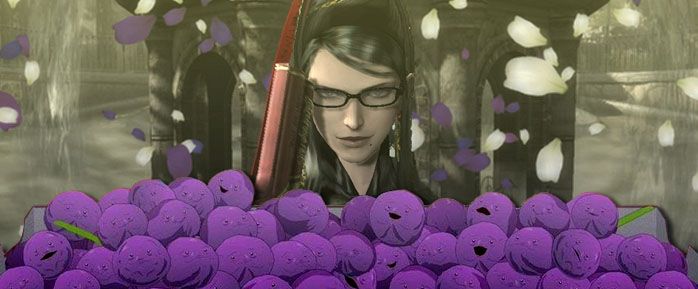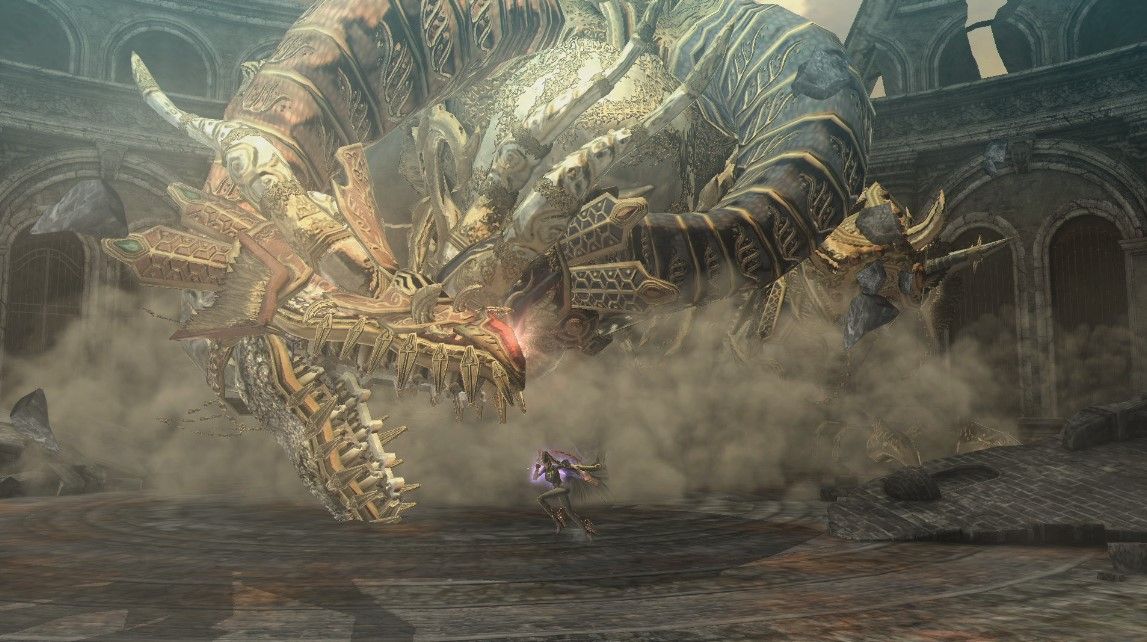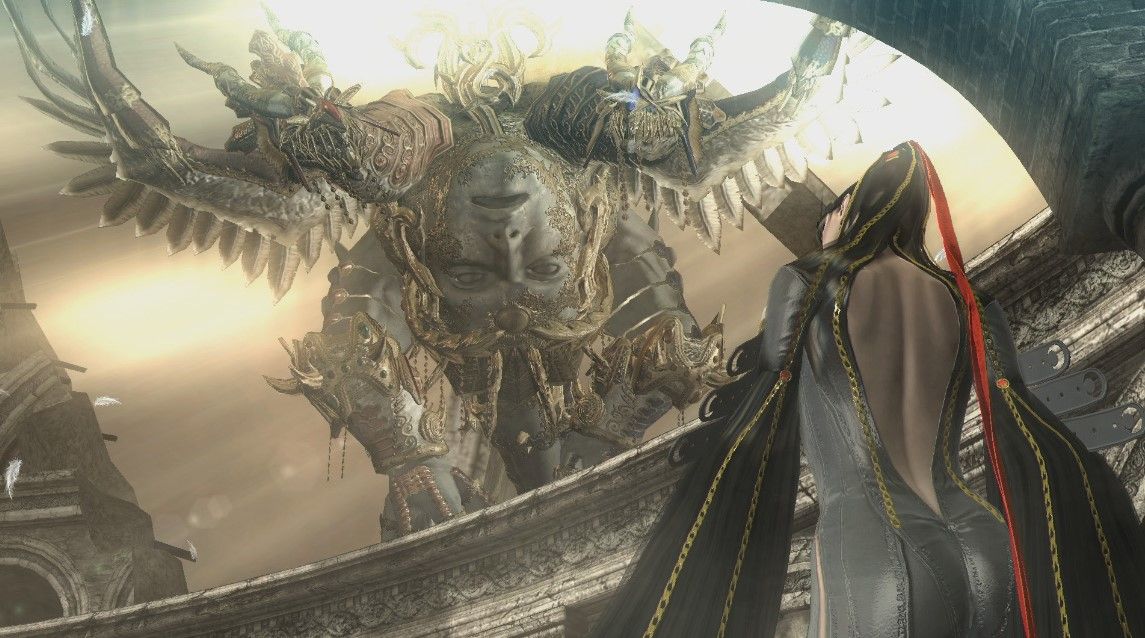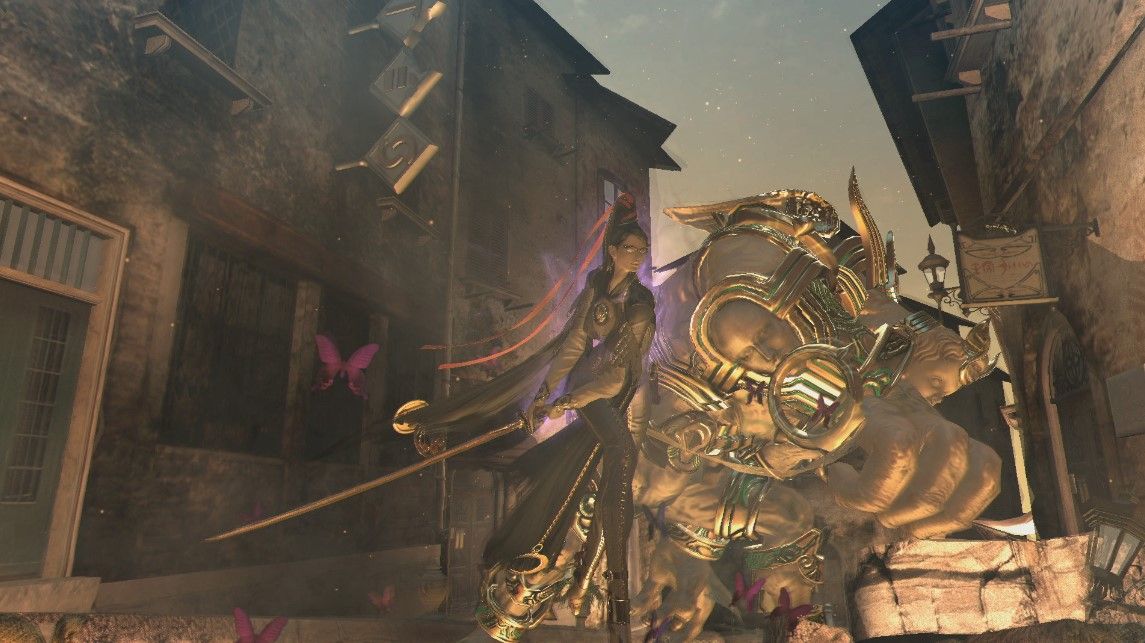Member the games you used to play? We member. The basement at the Hardcore Gamer office has a section known as the Crust Room, with an old grey couch and a big old CRT TV. All the classic systems are down there collecting dust, so in an effort to improve the cleanliness of our work space, we dust off these old consoles every so often and put an old game through its paces, just to make sure everything stays in working order. We even have a beige computer with a floppy disk drive.
There aren't too many games where the main protagonist is a witch. There are even less games where the protagonist's hair is a viable weapon, which outside of Kabuki: Quantum Fighter, none immediately spring to mind. These factors contributed to the allure of Bayonetta when it was originally released in 2009. Despite the sequels appearing exclusively on Nintendo platforms, Bayonetta was originally released for PlayStation 3 and Xbox 360 before being ported to Wii U among other consoles. Bayonetta being ported to so many consoles is a good thing because it's such a fun game that the more people that have access to it, the better.
Bayonetta begins when the titular protagonist wakes up from a 500 year long slumber, making her the envy of insomniacs everywhere. Being naturally groggy after snoozing for a half millennium she has no recollection of who she is. Her location is unknown as well, though it's eventually revealed to be Vigrid which is a not so subtle nod to a well-known book about hell. Over time and the assumed consumption of several dozen cups of coffee she begins to piece things together about who she is and what put her out of commission for 500 years. Bayonetta is an Umbra Witch, which is one of the two factions responsible for preserving the balance of darkness and light in the world. The Umbra Witches are the followers of darkness while the Lumen Sages are their counterparts that follow the light.
These two factions share two unique treasures known as the Eyes of the World, which separately are known by the mundane names of Left Eye and Right Eye. Both factions vanished Vigrid long ago. Bayonetta is in possession of a piece of jewelry which is believed to be the Left Eye. In a quest to figure out what exactly is going on and to restore some semblance of order, Bayonetta ventures out in search of the Right Eye, and in her quest the information about her past and greater purpose gradually returns to her. The story does take a while to get going, but ends up being worthwhile by the time of the game's conclusion.
The lore and spirituality of Bayonetta is unique to the game world, but clearly draws inspiration from real world mythology. Inferno is the analogue for hell and home for all demons. While it seems like an interesting place, the player never sets foot in it, but the demon denizens do come out to visit. Puratorio is purgatory, and this is a plane that stands parallel to the plane where where humans reside. Paradiso is heaven, but given that the Umbra Witch aligns herself with the forces of darkness, the angelic beings that reside here are the enemies of our bespectacled protagonist.
The enemies that the player encounters in these realms range from slightly dangerous pests to devastating colossi. Thankfully the Umbra Witch is equipped for the occasion. Bayonetta is acrobatic, able to double jump and flip out of harm's way. She has a multitude of attacks that include various melee weapons and firearms, not to the mention the ability to slow down time where she can inflict massive amounts of damage on her enemies or shapeshift into creatures such as a panther. Her most interesting asset is her hair, which gives new meaning to the phrase devil's haircut. Her long locks serve as a conduit to inferno, so she's able to summon demons for assistance with dispatching of her foes.
Bayonetta followed the template that emphasized style as an important component of action, but its legacy is a result of a game that's not style over substance. There's undeniably Devil May Cry DNA in Bayonetta's coding with the stylish combat and encouraging players to pull off the most stylish combos for higher scores. The world levels show great imagination in their environment and enemy design with many boss fights are of a scale where it feels like the player is doing battle with an actual god. Bayonetta was far from the first game of its generation to incorporate ridiculous combos into every fight scene and cinematic presentation of epic boss fights, but what made it remarkable is how well it built on the foundation of other games that came before. Making a stylistic action game that earn favorable comparisons to titles in the God of War and Devil May Cry library is no small feat, but it's something the team behind Bayonetta was able to successfully pull off.
Bayonetta is one of those games were just about everything about it just clicks. The art direction fit the dark but not so serious tone of the game perfectly which the same can be said of the soundtrack. Giving Bayonetta a sweet tooth for lollipops and the humorous nature of the NPCs gave a welcome shot of levity. But while all these aspects help make Bayonetta stand out among so many other action games, what puts it toward the top of that pile is the stellar gameplay mechanics. Mastering Bayonetta, particularly on higher difficulty settings, is a challenge but getting the basic moves down is a relatively easy and intuitive process. Playing it for the first time it's easy enough to pass most situations, but the drive to do better encourages the player to take the time to master the combo and learn all the ins and outs. The fun factor is there where the player wants to invest the time to pull off the most spectacular combos imaginable.
Between the cinematic presentation, great gameplay mechanics and just the right amount of humor, Bayonetta is one of those games that's still considered a must-play title two console generations after its release. A few elements of it feel dated, even on the more recent remasters, but that can be said of any game that's older than a decade. Bayonetta was only the third game developed by PlatinumGames, but traces of the smooth gameplay in this title can be seen in some of their later games like NieR: Automata and Astral Chain. Bayonetta currently has two sequels and an 8-bit "April Fools" browser game. The original Bayonetta was also ported to PC, PlayStation 4, Switch and Xbox One.
Want to Member some more old games we love? You can see all our Members here.




